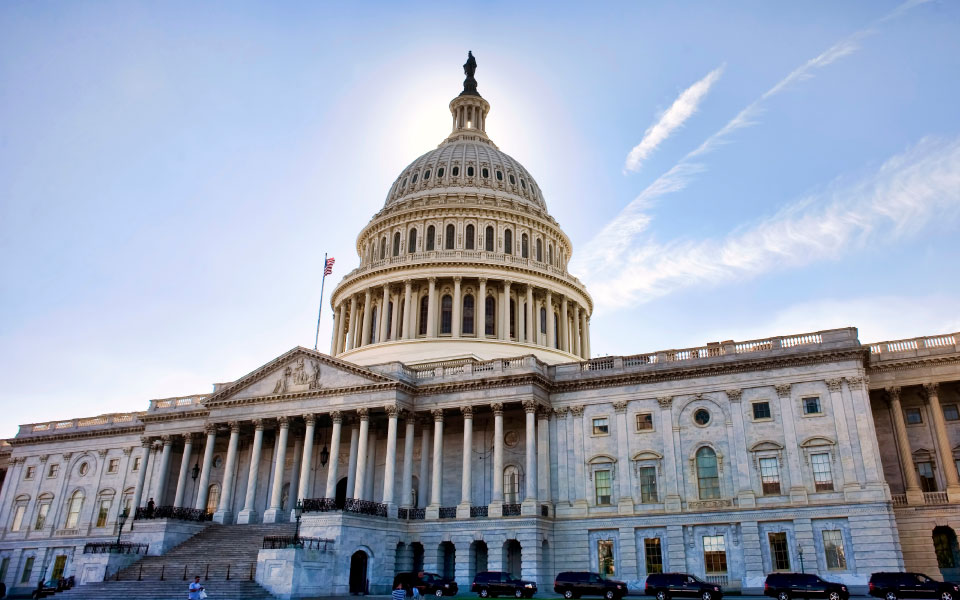On July 4, 2025, President Donald J. Trump signed into law the One Big Beautiful Bill Act (“OBBBA”). This bill extended many aspects of the Tax Cuts and Jobs Act (TCJA) before they expired as well as significantly altering the tax code. The purpose of this article is to discuss the major changes that affect the alternative investment industry.
Provisions Affecting Investors and Individual Taxpayers
Individual Tax Rates
The OBBBA permanently extends the income tax brackets from the 2017 TCJA. Therefore, the top federal rate of 37% remains in place.
State and Local Tax (SALT Cap)
Even though there was no change to how the Pass-Through Entity Tax deduction will work, the OBBBA did make changes to the SALT cap. Under the prior TCJA rules, taxpayers who itemized their deductions were only allowed to deduct up to $10,000 in state, local, foreign income, property or sales and use taxes. This limitation has now been changed to $40,000 in 2025 with an income threshold for phasing out the deduction starting at $500,000 of income. There is a 1% threshold increase to the deduction amount and the phase out amounts starting in 2026. The increase is only available for 5 years before permanently reducing to $10,000.
Excess Business Loss Limitation
The OBBBA has made permanent the excess business loss limitation. While there were concerns about having the excess business loss carryover amounts treated as excess business losses in the following years and being further limited in the computation of EBL in those future years, the law maintained that these losses not utilized in the current year will be converted to net operating losses in future years and be subject to the NOL limitations instead. The loss limitation threshold for 2025 is $636,000 for joint filers and $313,000 for other filers.
Section 199A
The section 199A qualified business income deduction that was scheduled to expire after 2025 has been made permanent. While this deduction provided limited benefits to taxpayers engaged in a specified service trade or business, there were some structural changes to the law going forward. The deduction remains at 20%, but the limit phase-in range was expanded for wages and investment in qualified business property.
Qualified Small Business Stock (QBSB)
One major change that is intended to benefit investing in qualified small businesses is the permanent tiered gain exclusion benefits for section 1202 qualified small business stock. Section 1202 has other changes that are discussed below as well which have made a great tax benefit for non-corporate taxpayers even better and permanent.
Prior to the enactment of the OBBBA, eligible investments in QSBS were eligible for 100% gain exclusion that met all the requirements, including being held for more than five years. The OBBBA changed this to include a 50% exclusion for stock held more than three years, 75% exclusion for stock held more than four years or 100% exclusion for stock held more than five years. This change only applies to stock originally acquired after the date of enactment of the law. Additionally, the gain excluded under the more than three-, four- and five-year rules will not be treated as a tax preference item for purposes of the alternative minimum tax.
The per-issuer limitation for the gain exclusion now increases from $10M to $15M subject to inflation adjustments. Additionally, the OBBBA increases the “aggregate gross asset” calculation to $75M from $50M, subjected to annual inflation increases as well. This change in the aggregate gross asset test enables more small businesses to qualify for section 1202 treatment.
Qualified Opportunity Zones
The OBBBA also made permanent the renewal of qualified opportunity zones. This includes a permanent rolling of the 10-year designation beginning on Jan. 1, 2027, maintains the existing opportunity zone designation process, and provides strengthened eligibility requirements and reporting requirements.
Provisions Affecting Funds and Related Portfolio Companies
Bonus Depreciation
The phase out provisions for bonus depreciation have been permanently changed so that taxpayers may now take first year bonus depreciation on qualifying property at 100% of the assets cost. The change takes effect for property acquired and placed in service after Jan. 19, 2025.
Section 179 Expensing- Section 179 expensing has been adjusted for expense allowance limits and phase out ranges. The allowable expense has been increased for property placed in service after December 31, 2024, to $2,500,000 from $1,000,000. The amount of the allowable expense would be reduced by the amount by which the cost of the qualifying property exceeds $4,000,000. This is an increased threshold from the previous phase out of $2.500,000. While these amounts are very helpful, since many states decouple from the federal bonus depreciation rules but allow Section 179 deductions, taxpayers should consider the potential benefits of these changes and plan accordingly.
Section 163(j)
Interest expensing has reverted back to the original rules under section 163(j) from TCJA before the reductions took place effective Jan. 1, 2022. The adjusted taxable income amount removes the deduction for depreciation, amortization and depletion providing a higher adjusted taxable income starting point that would then be subject to the 30% limitation for interest expense. This provision is made permanent and is effective for tax years beginning after Dec. 31, 2024. The legislation also contains a new ordering rule as to how to calculate the section 163(j) limit prior to interest capitalization and the removal of Subpart F, GILTI and section 78 gross ups from the adjusted taxable income amount for purposes of the calculation. These new provisions are effective for tax years beginning after Dec. 31, 2025.
Section 174 Research and Experimentation Expenses
The OBBBA provides that domestic research and experimentation expenses would not be subject to capitalization and amortization. Eligible expenses incurred after Dec. 31, 2024, are eligible for this treatment. Foreign research and experimentation expenses continue to be subject to capitalization and amortization over a 15-year period.
Form 1099 Reporting
One overlooked change in the new tax bill applies to payments made to certain payees. Beginning in 2026, the amount subject to reporting for renumeration paid to any person for services performed will increase to $2,000 from $600. For calendar years beginning after 2026, the dollar amount subject to reporting will be adjusted for inflation
Provisions Affecting Business with International Operations
For the tax provisions included in the OBBBA, see CBIZ’s article from July 3, 2025 One Big Beautiful Bill Act is Finalized – Biggest Impacts
Major concerns that did not make it into the final bill
Pass Through Entity Tax “PTET” Deduction
While there were early indications that there would be a coordination of the PTET deduction, definitions from section 199A and the SALT cap deduction and how this would significantly impact fund managers, the final version of the bill left the PTET deduction to continue as it has been.
Carried Interest
A major concern to fund managers was whether there would be any changes to partnership carried interest. President Trump voiced his support for eliminating the preferable tax treatment related to carried interest and taxing this income at ordinary tax rates. The final bill left the taxation of carried interest unchanged, and IRC Section 1061 continues in its existing format.
Conclusion
The changes made by the One Big Beautiful legislation are significant and will require ongoing examination and planning opportunities. Clients should meet with their CBIZ advisors to go overprovisions that may be applicable to their personal and business situations. Please reach out to your CBIZ contacts to set up a meeting to discuss.
© Copyright CBIZ, Inc. All rights reserved. Use of the material contained herein without the express written consent of the firms is prohibited by law. This publication is distributed with the understanding that CBIZ is not rendering legal, accounting or other professional advice. The reader is advised to contact a tax professional prior to taking any action based upon this information. CBIZ assumes no liability whatsoever in connection with the use of this information and assumes no obligation to inform the reader of any changes in tax laws or other factors that could affect the information contained herein. Material contained in this publication is informational and promotional in nature and not intended to be specific financial, tax or consulting advice. Readers are advised to seek professional consultation regarding circumstances affecting their organization.
“CBIZ” is the brand name under which CBIZ CPAs P.C. and CBIZ, Inc. and its subsidiaries, including CBIZ Advisors, LLC, provide professional services. CBIZ CPAs P.C. and CBIZ, Inc. (and its subsidiaries) practice as an alternative practice structure in accordance with the AICPA Code of Professional Conduct and applicable law, regulations, and professional standards. CBIZ CPAs P.C. is a licensed independent CPA firm that provides attest services to its clients. CBIZ, Inc. and its subsidiary entities provide tax, advisory, and consulting services to their clients. CBIZ, Inc. and its subsidiary entities are not licensed CPA firms and, therefore, cannot provide attest services.















